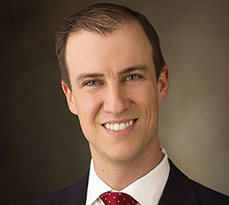Conference at Cambridge Judge Business School explores the development of Health Care Utilities that scale up innovations to reduce the cost of medicines and other health care products.

Life expectancy in the most advanced countries has increased from 40-45 years in the middle of the 19th century to around 80 today, due to improvement in food and sanitation but also huge medical advances. “That’s three months of additional life for every year over the past 180 years,” said Stefan Scholtes, Dennis Gillings Professor of Health Management at Cambridge Judge Business School.
Yet the cost of medicines – and health care more broadly – posed big problems in the 21st century, resulting in many people not having access to needed treatment. Despite what should be big advantages from economies of scale in producing drugs, for example, the price of many medications is exceedingly high.
“We know how to make things low cost, but we don’t have mechanisms to keep them low price,” said Carter Dredge, Senior Vice President and Lead Futurist of SSM Health, a not-for-profit health system based in St Louis, Missouri, who is a Business Doctorate degree candidate at Cambridge Judge. “We need new business structures in health care, not just new businesses.”
Stefan and Carter were the Academic Programme Directors of a conference – “Building innovate business models to improve care for all” – held jointly between SSM Health and Cambridge Judge on 11-13 July and organised by the School’s Executive Education division.
Organising healthcare as a not-for-profit utility

The conference drew around 30 leading health care professionals and experts from the US and the UK to explore how a new business genre, called a Health Care Utility (HCU), can deliver high-quality services and products to all customers at equal and low cost, by leveraging scale and a common purpose. The HCUs are designed to function like municipal not-for-profit water utilities, rather than corporate profit-making centres.
“There are many good health care innovations, but they’re local – they don’t scale,” said Stefan, who last year with Carter co-authored an article about HCUs published in NEJM Catalyst, a publication of the New England Journal of Medicine.
Among topics explored at the conference were the model of US-based Civica Rx, an HCU which seeks to lower the cost of select high-cost generic medicines, and the role of philanthropy in forging new health care models, with a presentation from the Gary & Mary West Foundation that focuses on lowering health care costs for seniors.
Graphite Health, another HCU discussed by participants, aims to reduce cost and complexity in the development and deployment of digital healthcare applications.
Other Cambridge Judge faculty participating in the conference discussions included Christoph Loch, Professor of Operations & Technology Management and former Director of the business school, and Feryal Erhun, Professor of Operations & Technology Management, who has done extensive research on health care supply chains.
Management by stewards rather than owners
HCUs are designed to have no equity or profit rights, as they are managed by stewards rather than owned by any individuals, or entities.
“The members who want the products finance the business – it’s about staying power,” said Carter. “And while there has to be a small margin to grow the business and finance capital expenditures over time, the goal is to solve the problem, and keep it solved, by delivering the services at the lowest sustainable costs.”
He told the conference that there is widespread public acknowledgement that healthcare systems must change to meet the needs of an aging population. “Momentum is very important in innovation,” he said. “It’s like surfing: you need a big wave to catch it properly. Right now we have several big waves going on; are we prepared to ride that wave? That’s what I’m hoping.”
Stefan compared what should happen when medicines lose patent protection (a big drop in price to “cost-plus”) to what often actually happens (a far more modest drop in price), because there is no effective competition.
He cited research by the US Food & Drug Administration, showing that if there are 6 or more manufacturers of a drug the generic price is often only 5% of the branded price, but that percentage balloons to more than 20% with 4 manufacturers, around 45% with two manufacturers, and 60% with just one manufacturer.
“The social contract between venture capital and society is not working. Venture capitalists take large risks to push technological boundaries and society therefore grants them a period of premium pricing as a monopolist. But then the innovations should become commoditised and accessible to all at the lowest sustainable price. Too often that does not happen – and generic medicines is only one example,” said Stefan, Director of the Cambridge Centre for Health Leadership and Enterprise at Cambridge Judge.
Carter added: “The emerging HCUs, modelled on Civica Rx, show a novel, pro-competitive way to enforce this social contract and make the healthcare industry work better for all.”
Stefan and Carter are planning a similar conference next year in the US.


